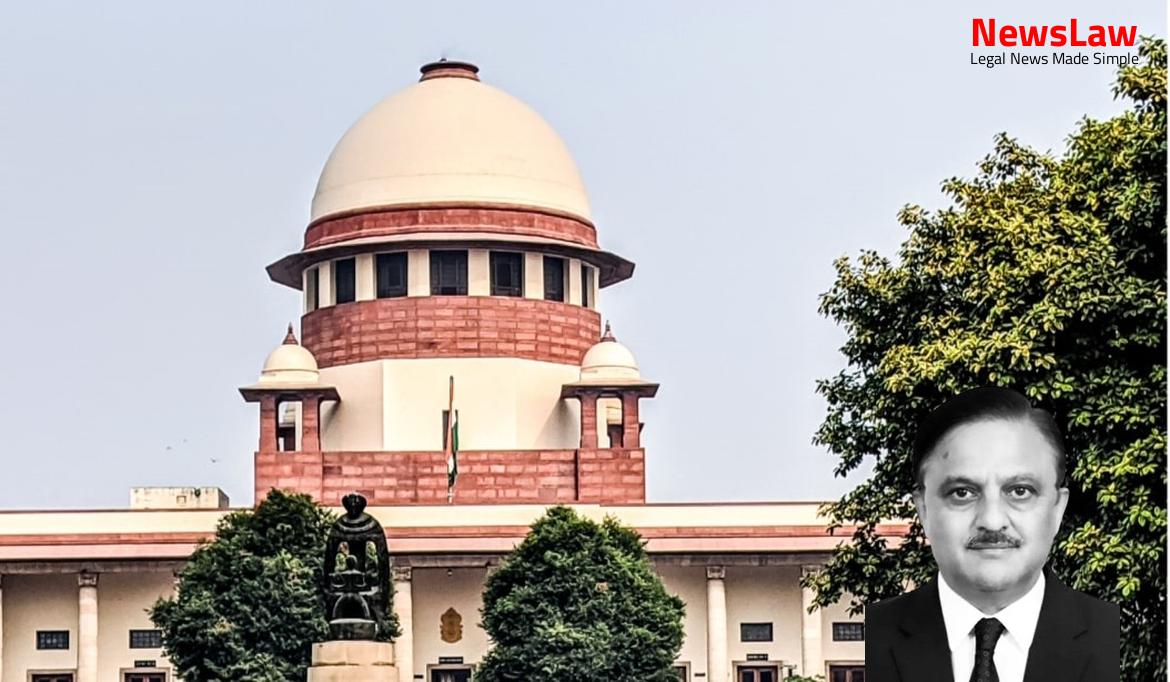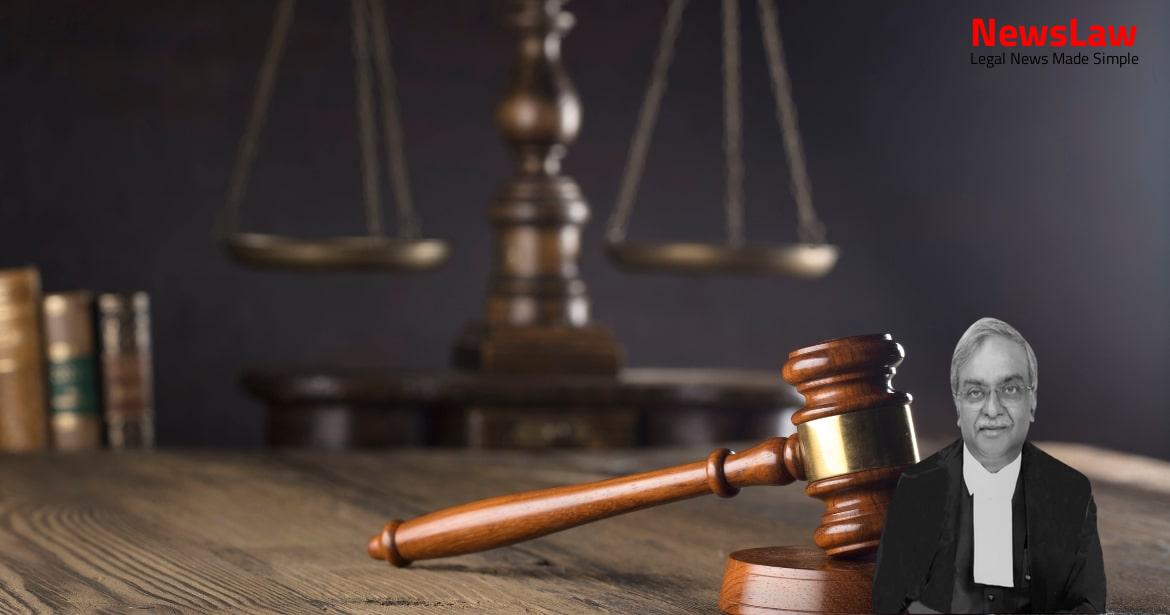In the legal case of Annamalai v. State, involving a charge under Section 306 of the IPC, the appellant faced allegations of abetting the suicide of the deceased who was one of the two younger brothers of the second respondent. However, upon careful examination of the facts and circumstances, the court found no direct incitement or proximate actions by the appellant leading to the tragic event, ultimately setting aside the impugned order. The appeal allows for the trial court to proceed against other accused in accordance with the law while keeping the defences of the appellant open.
Facts
- Annamalai refused to vacate the house despite losing the suit
- Quarrel between the family of the appellant and the deceased
- Deceased sought intervention of local MLA
- Deceased was one of the two younger brothers of the second respondent
- Appellant charged under Section 306 of the IPC
- Annamalai, his wife, son, and daughter (appellant) occupied the house
- Annamalai filed a civil suit against the deceased to stay in the house
- Deceased bought a house from his brother Anandraj
- Appellant filed petitions under Section 482 and for quashing, both dismissed
- Allegations of harassment by Annamalai’s family towards the deceased
- Dispute between deceased and his elder brother Baskar @ Annamalai
Also Read: State of Delhi v. Silk Fabric Appellant
Arguments
- The learned counsel for the appellant pointed out that the appellant left for the USA after her marriage and remained there until the date of the suicide.
- It was argued that there is no evidence to show that the appellant influenced the deceased to commit suicide during the time she was in the USA.
- The State’s counsel countered the appeal by stating that without oral evidence from the Trial Court, it is premature to conclude that the appellant did not commit the offense under Section 306 of the IPC.
- Despite being served notice, the second respondent did not appear.
Also Read: Hanuman Laxman Aroskar v. Union of India: Environmental Protection Case
Analysis
- The appellant’s marriage was fixed on 4 September 2019, and she left for the USA on 11 September 2019, never returning to India till 5 March 2020.
- There is no evidence of any communication between the appellant and the deceased from 12 September 2019 to 5 March 2020.
- The suicide note left by the deceased blamed mental torture from various sources, including the local MLA, but did not mention any direct interaction with the appellant during the period in question.
- The deceased objected to his name being printed on the wedding card without his consent, leading to a dispute, but no direct link to his suicide was established.
- Four suicide notes were alleged to have been written by the deceased, with general accusations against the appellant and her family, but lack of specific evidence connecting them to the suicide.
- Before holding an accused guilty of an offence under Section 306 IPC, the court must carefully examine the facts and circumstances of the case.
- The court must assess the evidence to determine if the victim was left with no other choice but to end their life due to the cruelty and harassment they faced.
- For an alleged abetment of suicide, there should be proof of direct or indirect incitement to commit suicide.
- Conviction under Section 306 IPC requires positive action by the accused proximate to the time of the occurrence, leading or compelling the person to commit suicide.
- General harassment or casual remarks that may cause distress in the ordinary course of events do not constitute instigation or abetment.
- A mere reprimand or a word spoken in anger does not amount to abetment of suicide.
- Without positive actions by the accused close to the time of the suicide, a conviction under Section 306 IPC is not sustainable.
- Appellant was not found to have committed any acts proximate to the suicide that would leave the deceased with no alternative.
- There were no acts of incitement by the appellant close to the date of the deceased’s suicide.
- Based on the charge sheet, there was no evidence of incitement by the appellant leading up to the suicide.
Also Read: Sungani Bai vs. Sailesh Joshi Legal Dispute Summary
Decision
- No offence is made out against the appellant.
- Impugned order is set aside.
- Proceedings in P.R.C. No.32/2021 pending on the file of the learned Judicial Magistrate-II, Puducherry stands quashed as against the appellant.
- Adjudication is confined to only the case of the present appellant.
- Trial Court is free to proceed against the other accused in accordance with the law.
- Defences of the other accused are kept open.
- The appeal is allowed.
Case Title: AMUDHA Vs. THE STATE REPRESENTED BY THE INSPECTOR OF POLICE (2024 INSC 244)
Case Number: Crl.A. No.-001642-001642 / 2024



